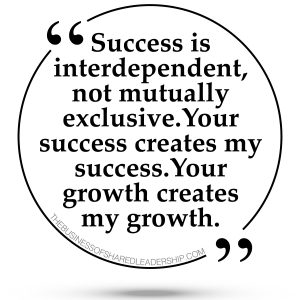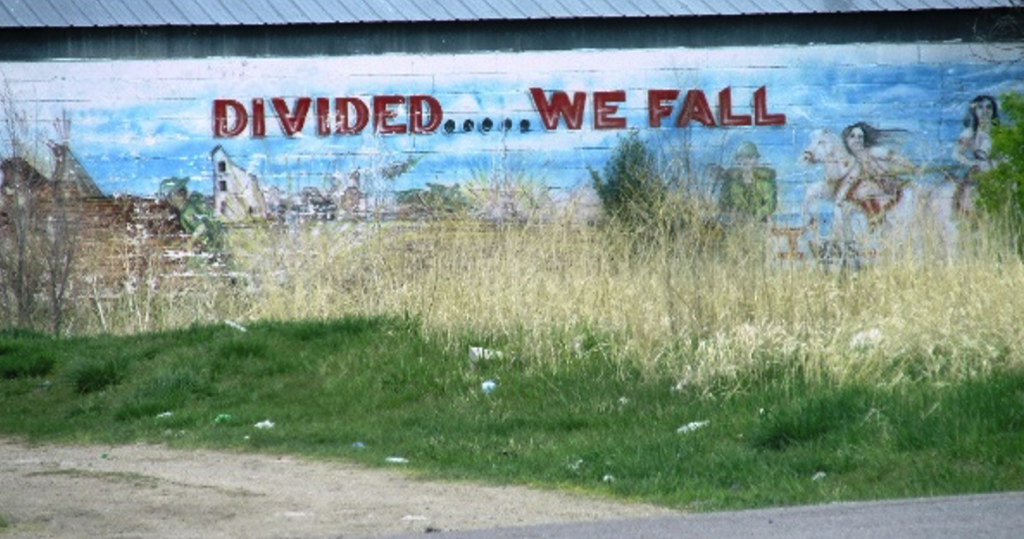“If everyone is moving forward together, then success takes care of itself.”
—Henry Ford
 The traditional definition of winning is Darwinian. Every winner requires an equal and offsetting loser. For me to win, someone else must lose. Picture the Roman Colosseum, where it was kill or be killed—eat or be eaten. According to this view, winning means defeating, and it’s been the dominant human success paradigm since the birth of agriculture 12,000 years ago.
The traditional definition of winning is Darwinian. Every winner requires an equal and offsetting loser. For me to win, someone else must lose. Picture the Roman Colosseum, where it was kill or be killed—eat or be eaten. According to this view, winning means defeating, and it’s been the dominant human success paradigm since the birth of agriculture 12,000 years ago.
This template of winning and losing was reinforced throughout my life when it came to sports. Every game had a scoreboard, and you could not win without defeating the team in the other uniform. The simplicity of this view of competition is alluring, but ill-founded.
A lot has changed in 12,000 years in terms of human understanding. Modern physics has given us a new understanding of our universe and how it functions, calling into question the traditional approach to competition. In our universe, it turns out, everything is interconnected. There is only one energy source, and each of us, along with everything we see, touch, and interact with, belongs to it.
Separateness is an illusion.
Unfortunately, this awareness of our shared connectivity has yet to impact how we structure human organizations. Far too often advancement still means conquest. The problem with this approach is simple. In a world where everything is interconnected, a loss for one person is a loss for everyone.
Russia doesn’t win if Ukraine loses.
Employers don’t win if their employees lose.
Planet Earth operates as a closed system. Nothing gets in or out except sunlight. Everything you see and interact with (yourself included) is comprised of the same stardust. An old buffalo is killed by a pack of wolves. The remaining carcass returns to the soil. That carcass then enriches the soil, producing new grass that feeds and sustains the next generation of buffalo. It’s all related and interconnected. It’s one big circle of energy, manifesting in countless forms.
So how does winning by defeating hold up in a universe where everyone and everything is related and interconnected? The answer is that it doesn’t. In our universe, winning isn’t winning unless everyone is winning.
Take the workplace, for example. In the old model employers and employees would battle over wages and work conditions. The employer vied to pay as little as possible for as much work as possible. But that’s not actually winning. A company does not win if the people who comprise it lose. In an interconnected world, the company can only win if the people who work there are winning. Success is interdependent, not mutually exclusive. Your success creates my success. Your growth creates my growth.
I think of this universal truth in terms of my affinity for the people of the Pine Ridge Indian Reservation in South Dakota. The second half of the nineteenth century in American history is often defined by our “winning of the West.” In that spirit, winning for white America meant defeating, destroying, and relocating all the Native tribes of the region. But that’s not actually winning. Today Pine Ridge (home to one such tribe) is the poorest place in America. Desecrating one community to advance another is losing.
An interconnected and interdependent world only wins when everyone is advancing. Success depends on progress for others. In the world of work, this means creating employee-centric companies in which the priority of the company becomes the experience of the people who work there. The company wins by focusing on the well-being of the people who comprise it.
No one must lose for you to win.
“Non nobis solum nati sumus.”
(“Not for ourselves alone are we born.”)
―Marcus Tullius Cicero

_____
Thank you for considering my thoughts. In return I honor yours.
Every voice matters. Nestled between our differences lies our future.
www.thebusinessofsharedleadership.com